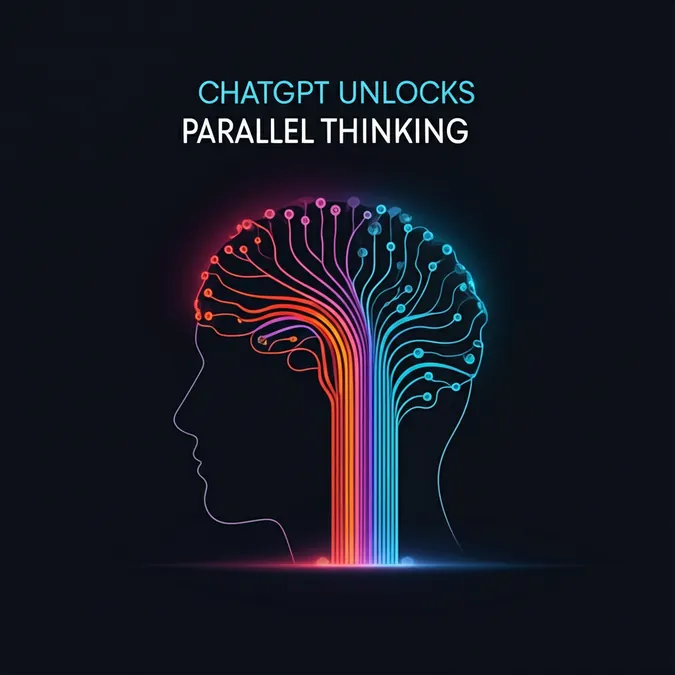Developer Offer
Try ImaginePro API with 50 Free Credits
Build and ship AI-powered visuals with Midjourney, Flux, and more — free credits refresh every month.
Inside the AI Chatbot Wars ChatGPT vs Copilot
ChatGPTs Reign Still the Undisputed Market Leader
In the fiercely competitive arena of artificial intelligence, OpenAI’s ChatGPT continues to hold an ironclad grip on the market, commanding over 80% of the global share as of late 2025. This dominance is underscored by staggering engagement numbers, with the platform processing billions of user interactions every month. Analysts attribute its sustained leadership to a powerful combination of its early-mover advantage and a relentless cycle of innovation, including enhanced multimodal capabilities and expanded API access for developers.
However, the ground is beginning to shift. While ChatGPT's position seems unassailable, a recent TechRadar report reveals a slight erosion in its market share. This subtle decline signals the rise of formidable competitors, most notably Microsoft's Copilot, which is leveraging deep ecosystem ties to gain ground.
Microsoft Copilots Strategic Ascent Through Integration
Microsoft has made significant strides with Copilot in 2025, capturing a notable increase in market share of approximately 4.6% in recent months. Its secret weapon is not just the AI model itself, but its seamless integration into the Microsoft 365 suite. By embedding Copilot directly within widely used tools like Word, Excel, and Teams, Microsoft offers a frictionless way for businesses to adopt AI without overhauling their existing workflows. This strategy has resonated deeply with corporate clients.
An analysis from IntelligentHQ directly links Copilot's growth to a nearly 5% dip in ChatGPT's share over a two-month period, demonstrating how enterprise-focused features are effectively chipping away at OpenAI's lead. Bolstered by its vast Azure cloud infrastructure and extensive enterprise partnerships, Microsoft possesses a distribution advantage that is difficult for standalone AI companies to counter. While OpenAI's ChatGPT app boasts impressive revenue figures of $1.35 billion, a 673% year-over-year increase, Copilot's bundled subscription model is quietly building a massive enterprise revenue stream that could pose a long-term challenge.
A Shifting Landscape Perplexitys Fall and New Challengers
While Copilot rises, other competitors have faltered. Perplexity AI, once a promising challenger known for its search-augmented responses, has seen its fortunes reverse dramatically. Industry observers have noted a steep plummet in its traffic share, which now sits below 2% globally. This decline, as detailed in a TechRadar deep dive, is attributed to user fatigue with its citation-heavy format and pressure from more versatile tools.
Meanwhile, other players are fighting for position. According to a report from ZDNet, xAI's Grok has emerged as the fastest-growing rival, leveraging Elon Musk's social media ecosystem to gain visibility. However, these efforts are dwarfed by the sheer scale of ChatGPT, which, according to data cited by Rude Baguette, attracts 46.6 billion annual visits and controls 83% of top AI traffic.
The Future of the AI Chatbot Wars
The evolving market dynamics indicate that the AI industry is maturing. Success is no longer just about raw generative power but about strategic differentiation, integration, and distribution. OpenAI's potential alliances, such as deeper ties with Apple, could be a key defense against Copilot's enterprise march. However, the landscape is complicated by regulatory pressures, including antitrust probes into Microsoft's AI investments. A Bloomberg investigation even points to internal tensions within the OpenAI-Microsoft partnership, with some employees preferring ChatGPT over their own company's mandated Copilot.
Looking ahead, the battle will likely be fought on new fronts, including real-time data processing and ethical AI governance. While Moneycontrol notes ChatGPT's persistent traffic lead, Copilot's impressive mobile growth—outpacing all rivals in U.S. usage—shows this is a multi-front war. By 2026, the market may be redefined by hybrid models that blend the best of chatbots and search, creating new opportunities for competitors to challenge ChatGPT's monopoly.
Compare Plans & Pricing
Find the plan that matches your workload and unlock full access to ImaginePro.
| Plan | Price | Highlights |
|---|---|---|
| Standard | $8 / month |
|
| Premium | $20 / month |
|
Need custom terms? Talk to us to tailor credits, rate limits, or deployment options.
View All Pricing Details

